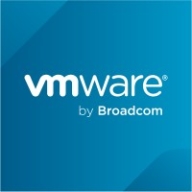

Google Kubernetes Engine and VMware Tanzu Platform compete in the cloud and container management domain. Google Kubernetes Engine has an edge with stronger integration with Google services and affordability, whereas VMware Tanzu appeals to enterprises using VMware infrastructures.
Features: Google Kubernetes Engine provides a seamless deployment experience and robust autoscaling beneficial for users in multi-cloud environments. It integrates easily with Google services like BigQuery and VertexAI, enhancing data processing efficiency. VMware Tanzu Platform offers strong integration with existing VMware products like vSphere, providing a comprehensive solution for infrastructure, networking, and storage. Notable features include advanced dashboard capabilities and efficient lifecycle management.
Room for Improvement: Google Kubernetes Engine could simplify network configurations and improve documentation clarity. Enhancing application-level security integration is another area requiring attention. Improving the response time of technical support has been noted. VMware Tanzu could enhance integration with third-party solutions and boost flexibility in handling diverse infrastructures. Pricing is a concern, particularly for smaller enterprises, as it is higher compared to other options.
Ease of Deployment and Customer Service: Google Kubernetes Engine facilitates efficient deployment, favoring public and hybrid cloud environments, coupled with a robust support system. However, there is mixed feedback regarding support responsiveness. VMware Tanzu is effective in hybrid cloud setups and integrates seamlessly with VMware's suite of products. Both platforms are known for good customer service, although Google could improve its technical support response times. VMware offers better integration with its solutions.
Pricing and ROI: Google Kubernetes Engine is viewed as affordable, benefiting from an open-source base, though resource costs like GPU-based applications may increase prices. It offers a cost-effective solution overall, although some find regional redundancy costs steep. VMware Tanzu is generally more expensive, catering mainly to large enterprises capable of leveraging bundle discounts. The higher pricing reflects its extensive capabilities within VMware environments. Both solutions deliver substantial ROI, with Google appealing to startups with its flexible integration, while VMware suits enterprises with existing VMware investments.
| Product | Market Share (%) |
|---|---|
| VMware Tanzu Platform | 11.8% |
| Google Kubernetes Engine | 2.1% |
| Other | 86.1% |


| Company Size | Count |
|---|---|
| Small Business | 20 |
| Midsize Enterprise | 6 |
| Large Enterprise | 15 |
| Company Size | Count |
|---|---|
| Small Business | 10 |
| Midsize Enterprise | 3 |
| Large Enterprise | 10 |
Kubernetes Engine is a managed, production-ready environment for deploying containerized applications. It brings our latest innovations in developer productivity, resource efficiency, automated operations, and open source flexibility to accelerate your time to market.
VMware Tanzu Platform is designed for cloud-native development and management of Kubernetes, CI/CD processes, microservices, and containerized workloads. It supports deployments both on cloud and on-premises, providing centralized management via Mission Control.
VMware Tanzu Platform offers seamless integration with vSphere, ESX, and vSAN, supporting centralized cluster management and lifecycle management. The platform provides a GUI for monitoring CI/CD pipelines and network policies, enhancing multi-tenancy and Day 2 operations. Users can easily manage Kubernetes clusters, monitor applications, and integrate with tools such as GitHub, GitLab, Cloud Foundry, and Azure. It ensures compliance and security for service providers, financial institutions, and businesses.
What are the key features of VMware Tanzu Platform?
What benefits and ROI should users look for in VMware Tanzu Platform reviews?
Industries such as financial institutions, service providers, and businesses requiring rigorous compliance and security deploy VMware Tanzu Platform. These entities benefit from centralized management, streamlined DevOps processes, and integrated tools, enhancing their capabilities in cloud-native developments and containerized workloads.
We monitor all Container Management reviews to prevent fraudulent reviews and keep review quality high. We do not post reviews by company employees or direct competitors. We validate each review for authenticity via cross-reference with LinkedIn, and personal follow-up with the reviewer when necessary.